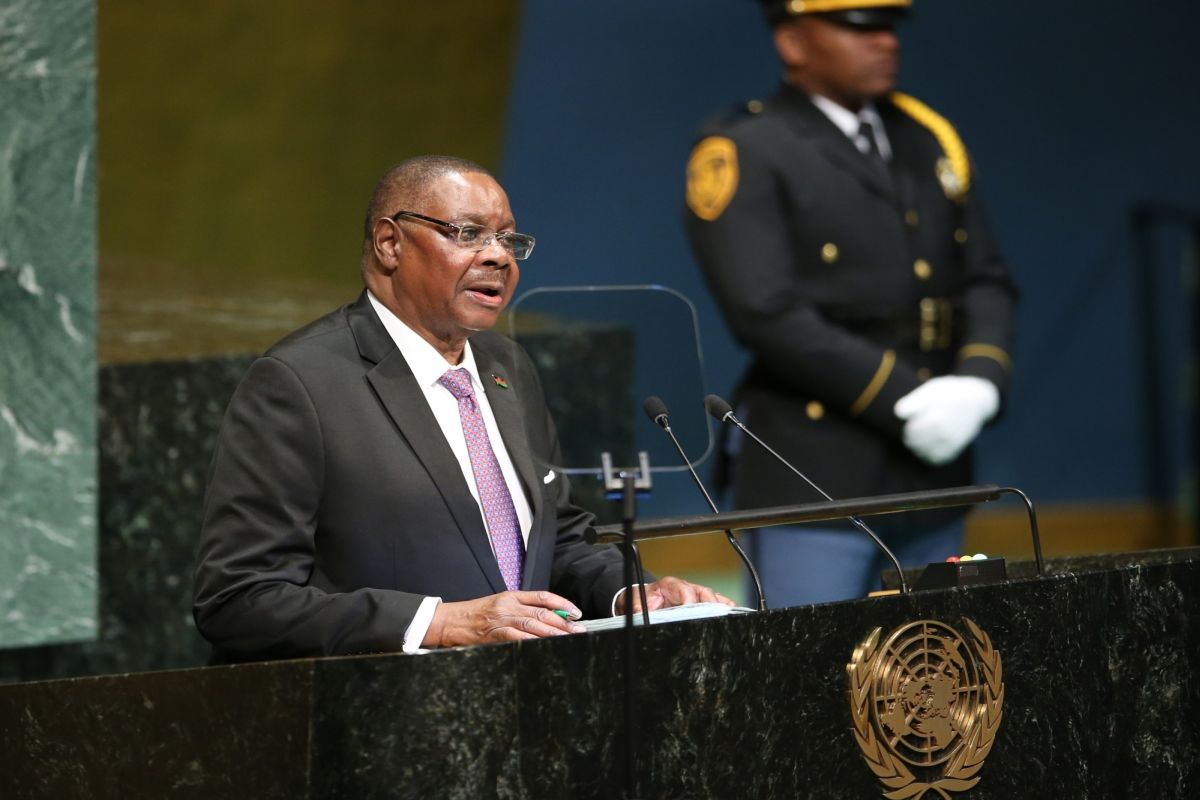President Murmu meets Malawi counterpart, holds delegation-level talks
The President also witnessed the signing of MoUs on arts & culture, youth matters, sports and pharmaceutical cooperation.
Malawi won independence from Britain in 1964 and was then ruled by Hastings Banda as a one-party state until the first multi-party elections in 1994.

Malawi's President Arthur Peter Mutharika (Photo: IANS)
Malawi goes to the polls on Tuesday after a closely-fought election campaign, with President Peter Mutharika battling to hold off two serious rivals in a race that focused on corruption allegations and economic development.
Mutharika, who has been in power since 2014, will face opposition from his own deputy Saulos Chilima and former Baptist preacher Lazarus Chakwera.
Advertisement
“We have set Malawi on the path of progress,” Mutharika, 78, told several thousand cheering supporters of his ruling Democratic Progressive Party (DPP) in Blantyre at his final campaign rally at the weekend.
Advertisement
His bid for a second term has focused on the economy and his record of improving road and electricity infrastructure across the southeastern African country.
Under Mutharika, inflation has fallen from 23 per cent to below nine per cent, but still, only 11 per cent of the population has access to electricity.
The election is the first since a new law forced parties to declare large donations and banned the once-common practice by candidates of giving cash handouts.
Polling starts at 06:00 am (0400 GMT) on Tuesday.
Food shortages, power outages and ballooning external debt have hurt Mutharika’s popularity ahead of the vote.
He faces a strong challenge from Chakwera, leader of the main opposition Malawi Congress Party (MCP), who came a narrow second in the 2014 election.
Ahead of the vote, Chakwera told AFP that he expected “nothing less than victory — we are winning.” Mutharika’s other opponent, Chilima, quit the ruling party last year to form the youth-focused United Transformation Movement while staying on as vice president.
Under Malawi law, the president cannot fire the vice president. Chilima, 46, emphasised his youth credentials by doing push-ups on stage during the campaign.
More than half of the 6.8-million registered voters are under 35.
Dan Banik, a politics professor at the University of Malawi, told AFP that the election posed many questions.
“What will happen when a winner is declared by a narrow margin?” he said.
“How will losing presidential candidates take defeat? Will supporters of the incumbent DPP peacefully accept losing?” he asked.
Banik said that the election commission and the courts could be severely tested by counting complaints after polling day on Tuesday when voters will also choose lawmakers and local councillors.
In Malawi’s “winner takes all” system, Mutharika won in 2014 with just 36 per cent of the vote.
He came to power in the aid-dependent country vowing to tackle corruption after the “Cashgate” scandal erupted a year earlier, revealing massive looting from state coffers.
But his government has been dogged by several high-profile cases of corruption and nepotism.
Last November, Mutharika himself was forced to return a $200,000 donation from a businessman facing a corruption case in a $3-million contract to supply food to the Malawi police.
“It will even be more uncertain and tight than last time. It could undermine the legitimacy of the winning candidate,” said Michael Jana, a Malawi politics specialist at Johannesburg’s University of the Witwatersrand.
Malawi won independence from Britain in 1964 and was then ruled by Hastings Banda as a one-party state until the first multi-party elections in 1994.
The country, which has a population of 18 million people, has one million adults living with HIV — one of the highest HIV prevalence rates in the world.
Advertisement